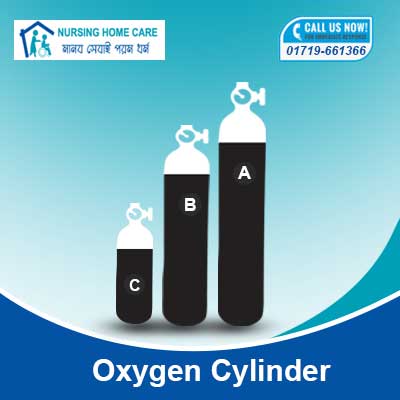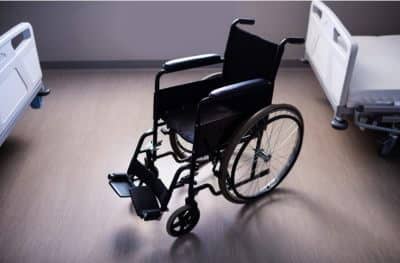Corona oxygen cylinder, be careful! Oxygen cylinders are one of the most requested and rare things in this country at the moment. Many patients with coronary heart disease now need to be given artificial oxygen for shortness of breath. Many people are now searching for oxygen cylinders to save their dying loved ones.
Corona oxygen cylinder, be careful!
Oxygen cylinders are one of the most requested and rare things in this country at the moment. Many patients with coronary heart disease now need to be given artificial oxygen for shortness of breath. Many people are now searching for oxygen cylinders to save their dying loved ones. Taking the cylinder home or to the hospital.
Since this demand and use of oxygen cylinders can be assumed to be an inevitable part of our lives for many more days, there are some dangers of using, storing and transporting oxygen cylinders, and some precautions to avoid.
Just as oxygen is life-giving, it can also be life-threatening. One of the main components of any fire is the oxygen in the air. In places where there is an oxygen cylinder or any other supply of oxygen, special care has to be taken to avoid fire accidents. This is because, ‘Oxygen-rich environments’ or ‘oxygen-enriched atmospheres’, i.e. where the amount of oxygen is higher than the normal environment, are more prone to fires and can take a much more serious shape in the event of an accident. Items that may not be combustible in a normal environment may participate in the combustion process in an oxygen-rich environment.
Incidents that are not sufficient to cause a fire in a normal environment, in the presence of excess oxygen; small incidents (small sparks, smoking, extinguished cigarettes, friction on metal-metal, the presence of any heat, etc.) can trigger a catastrophic fire. In an oxygen-rich environment, the temperature of the flame is higher, the heat release rate from the fire is higher and the fire spreads faster than usual. For these reasons, it is almost impossible to put out a fire in a place where there is excess oxygen.
There are many such instances of horrific fire accidents in places where there is a supply of ICU or oxygen in hospitals in different parts of the world, including the recent accident in Bangladesh. Therefore, oxygen is used in such places of medical institutions, where there are critically ill patients, it is very important to have proper arrangements for firefighting and fire fighting.
Another feature of the oxygen cylinder is that it stores oxygen at very high pressures (100-150 times higher than the air pressure in our normal environment).
Therefore, due to any push, injury, or any other physical damage to the cylinder, the presence of sunlight or any other heat, not placing the cylinder properly, not following the correct rules when opening and closing the valve of the cylinder, etc., it can explode. It can bring terrible consequences. Therefore, it is important to be very careful in the use, storage, and transportation of oxygen cylinders and to follow certain rules.
Such as:
- Place the cylinder firmly on the stand or cart during use.
- Ensure that there is no heat source near the cylinder.
- Where there is an oxygen cylinder, be careful not to make even the smallest spark (electric spark, cigarette spark, metal-friction spark, any kind of welding work, etc.).
- Do not spray aerosols, paints, or the like while using oxygen.
- There is a good ventilation system to keep the oxygen cylinder in such a place because in that case, the concentration of oxygen in the air in the closed place increases the possibility of creating an oxygen-rich environment.
- Take care while transporting the oxygen cylinder so that it does not get hit or pushed in any way, or rolls, direct sunlight so that it does not fall on the cylinder for a long time, etc.
- After all, there are specific rules for using the oxygen cylinder (opening / closing the valve, controlling the regulator knob, checking the position of the handle, etc.), knowing them, being trained and then using the cylinder.
- Provide oxygen to the patient as advised by the physician. The need for oxygen to save the lives of loved ones dying in this situation of corona disease is skyrocketing in the country at the moment. That life-giving oxygen should not be the cause of terrible accidents and deaths due to our carelessness and ignorance. From the authorities of the medical institution to the cylinder supplier, transporter and individual users, the utmost caution is most desirable in this regard.
Taking the cylinder home or to the hospital.
Since this demand and use of oxygen cylinders can be assumed to be an inevitable part of our lives for many more days, there are some dangers of using, storing and transporting oxygen cylinders, and some precautions to avoid.
Just as oxygen is life-giving, it can also be life-threatening. One of the main components of any fire is the oxygen in the air. In places where there is an oxygen cylinder or any other supply of oxygen, special care has to be taken to avoid fire accidents. This is because, ‘Oxygen-rich environments’ or ‘oxygen-enriched atmospheres’, i.e. where the amount of oxygen is higher than the normal environment, are more prone to fires and can take a much more serious shape in the event of an accident. Items that may not be combustible in a normal environment may participate in the combustion process in an oxygen-rich environment.
Incidents that are not sufficient to cause a fire in a normal environment, in the presence of excess oxygen; small incidents (small sparks, smoking, extinguished cigarettes, friction on metal-metal, the presence of any heat, etc.) can trigger a catastrophic fire. In an oxygen-rich environment, the temperature of the flame is higher, the heat release rate from the fire is higher and the fire spreads faster than usual. For these reasons, it is almost impossible to put out a fire in a place where there is excess oxygen.
There are many such instances of horrific fire accidents in places where there is a supply of ICU or oxygen in hospitals in different parts of the world, including the recent accident in Bangladesh. Therefore, oxygen is used in such places of medical institutions, where there are critically ill patients, it is very important to have proper arrangements for firefighting and fire fighting.
Another feature of the oxygen cylinder is that it stores oxygen at very high pressures (100-150 times higher than the air pressure in our normal environment).
Therefore, due to any push, injury or any other physical damage to the cylinder, the presence of sunlight or any other heat, not placing the cylinder properly, not following the correct rules when opening and closing the valve of the cylinder, etc., it can explode. It can bring terrible consequences. Therefore, it is important to be very careful in the use, storage and transportation of oxygen cylinders and to follow certain rules.
Such as:
- Place the cylinder firmly on the stand or cart during use.
- Ensure that there is no heat source near the cylinder.
- Where there is an oxygen cylinder, be careful not to make even the smallest spark (electric spark, cigarette spark, metal-friction spark, any kind of welding work, etc.).
- Do not spray aerosols, paints, or the like while using oxygen.
- There is a good ventilation system to keep the oxygen cylinder in such a place because in that case, the concentration of oxygen in the air in the closed place increases the possibility of creating an oxygen-rich environment.
- Take care while transporting the oxygen cylinder so that it does not get hit or pushed in any way, or rolls, direct sunlight so that it does not fall on the cylinder for a long time, etc.
- After all, there are specific rules for using the oxygen cylinder (opening / closing the valve, controlling the regulator knob, checking the position of the handle, etc.), knowing them, being trained and then using the cylinder.
- Provide oxygen to the patient as advised by the physician. The need for oxygen to save the lives of loved ones dying in this situation of corona disease is skyrocketing in the country at the moment. That life-giving oxygen should not be the cause of terrible accidents and deaths due to our carelessness and ignorance. From the authorities of the medical institution to the cylinder supplier, transporter and individual users, the utmost caution is most desirable in this regard.


